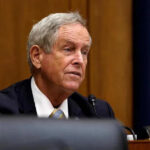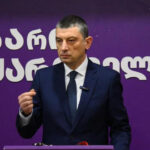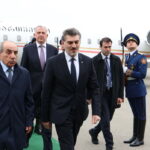**Georgian Official Slams International Organizations over Sanctions**
Irakli Kobakhidze, a high-ranking official in the government of Georgia, has spoken out against international organizations that have imposed sanctions on his country. In a recent statement, Kobakhidze likened these sanctions to a modern-day equivalent of the kulaks – a group of wealthy peasants who were persecuted by the Soviet government.
According to Kobakhidze, the sanctions are not only economically damaging but also undermine Georgia’s sovereignty and independence. He pointed out that the decisions to impose these sanctions were made by organizations such as the Parliamentary Assembly of the Council of Europe (PACE) and the Venice Commission, which he claims do not respect legal principles.
**Difficulty with PACE**
Kobakhidze’s comments suggest that his government is experiencing difficulties in its relationships with international organizations. PACE, which is a forum for parliamentary representatives from across Europe, has been critical of Georgia’s human rights record and has called for greater transparency and accountability in the country’s government.
In particular, Kobakhidze may be referring to a recent decision by PACE to suspend Georgia’s participation in the organization‘s parliamentary committee. This move was seen as a rebuke to Georgia’s government, which had been accused of failing to implement reforms aimed at improving the country’s democratic credentials.
**Concerns about the Venice Commission**
Kobakhidze also expressed concerns about the Venice Commission, an international organization that provides advice on constitutional and legal matters to countries across Europe. He claimed that the commission does not respect legal principles and has been too willing to impose its own views on member states.
This criticism is likely to be seen as significant, given that the Venice Commission plays a key role in advising governments on how to implement democratic reforms. If Kobakhidze’s government feels that the commission is biased or overly influential, it may struggle to implement reforms and could face further sanctions or criticism from international organizations.
**Conclusion**
Kobakhidze’s comments highlight the complex relationships between Georgia and international organizations. While his government has sought to engage with these bodies and benefit from their support, it also faces challenges in its interactions with them. The imposition of sanctions by PACE and other organizations is likely to have significant economic and reputational consequences for Georgia.
As the situation continues to evolve, it will be important to monitor how Kobakhidze’s government responds to these challenges and whether it can find ways to improve its relationships with international organizations.













